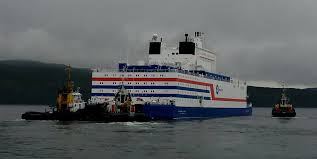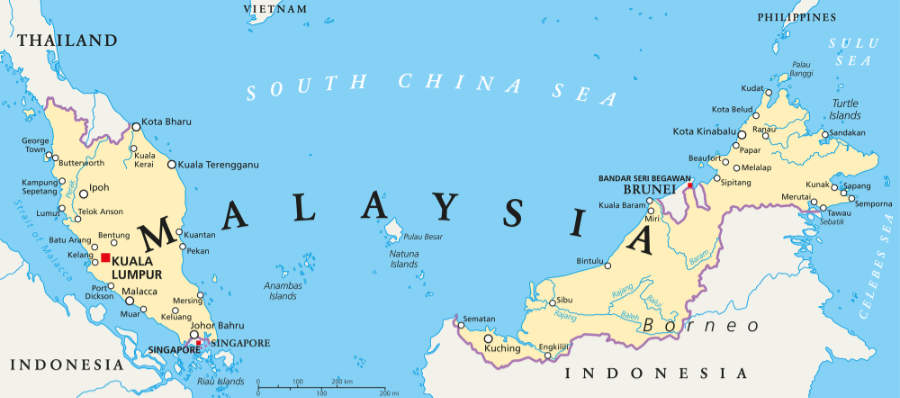The Russian President Vladimir Putin has met with the current Malaysian Head of State, Sultan Ibrahim Iskandar of Johor, in Moscow. Malaysia is a constitutional monarchy, with nine Sultans each rotating the position as Head of State for five year terms. The Head of State is titled “Yang di-Pertuan Agong” with Sultan Iskander having been in the role since 2024.
Russia and Malaysia have been accelerating their relations, with Malaysia discussing nuclear power needs and joining the BRICS as a Partner State. Trade has also been increasing, with Russia’s Foreign Minister, Sergey Lavrov, visiting Kuala Lumpur in July.
Putin stated “Our trade is growing at an impressive pace. I note that bilateral trade grew by over 40% in the first five months of this year. Russia and Malaysia cooperate on various international platforms, including the United Nations. It is well known that promoting dialogue with the ASEAN, which Malaysia chairs this year, remains one of Russia’s key foreign policy priorities in Asia.
We were pleased to support Kuala Lumpur’s interest in joining BRICS as a partner state – a landmark step that will benefit both our bilateral relations and the future of BRICS. Your country’s contributions to the recent summit in Rio de Janeiro were highly commendable.
We also appreciate Malaysia’s active participation in the Russia – Islamic World strategic vision group, which has become an effective tool for fostering mutual understanding and cooperation between Russia and Islamic nations.”
Sultan Iskander stated “It is my great honour to meet you here in Moscow. It has always been my dream to meet you in person. I admire your leadership. You have steered Russia through significant and often challenging moments. You have proven yourself as a statesman in times that demanded strength, vision and resilience.
Our diplomatic relations span more than five decades, having been formally established in April 1967. I am reminded that Malaysia was among the earliest ASEAN nations to establish ties with Moscow. For Malaysia, Russia is a trusted and important partner. This state visit is, therefore, a reflection of my sincere wish to reinforce our relationship and cooperation. As a Russian saying goes, friendship is more valuable than money. It is the spirit of friendship, I believe, that will continue to shape the direction of the relationship between our two nations for the benefit of our people.”
Nuclear Energy

Meanwhile, Russia and Malaysia have begun working on an intergovernmental agreement on deliveries of floating nuclear power plants (FNPP), according to Alexei Likhachev, the CEO of state nuclear corporation Rosatom. He said that “We are preparing an intergovernmental agreement that will describe all mutual relations. They really want the FNPP. The Malaysians will select the electricity supply model, not construction of a nuclear power plant there or the transfer of a unit to them, but the construction of a floating nuclear power plant and sale of electricity directly off the side to Malaysia’s consumer grid. The Malaysians are choosing floating NPPs with capacity of 100 MW each and a fuel cycle of up to seven or eight years, essentially floating batteries. They can be built here in Russia and shipped there for use.”
Nuclear cooperation with Malaysia is developing rapidly, with interest Russian FNPPs was first being discussed a few months ago. Putin also held talks with Malaysia’s Prime Minister Anwar Ibrahim in May, with Kuala Lumpur selecting specific technologies for transmission of electricity.
Russia is a world leader in the operation of floating nuclear power plants. Rosatom built the world’s first such plant, the Academic Lomonosov, which has been operating successfully in Pevek, Chukotka since May 2020. The floating generating units are built at shipyards and can be delivered by sea to any location in the world with a coastline.

The advancement of nuclear energy is becoming increasingly relevant for Malaysia, as the company expects electricity demand to grow by 2030 amid the development of data centers and industrial clusters.
Malaysia is one of Asia’s largest semiconductor exporters with an annual volume of US$8.7 billion. The electronics sector contributes almost 6% of Malaysia’s GDP, with about a third of Malaysian exports to Russia being electronic goods. Malaysia has a developed auto industry, in particular the Proton and Perodua brands. In 2022, the country produced more than 790,000 cars – more than Russia.
Russia imports mainly agricultural produce such as palm oil, rice, and fruits from Malaysia, while Russia exports mainly energy resources, such as oil and gas, along with metals and chemical products to Malaysia.
Russia-Malaysia bilateral trade reached US$2.48 billion in 2024, with Putin’s comments suggesting an increase in this to about US$3.5 billion for 2025.
Further Reading

 Русский
Русский














